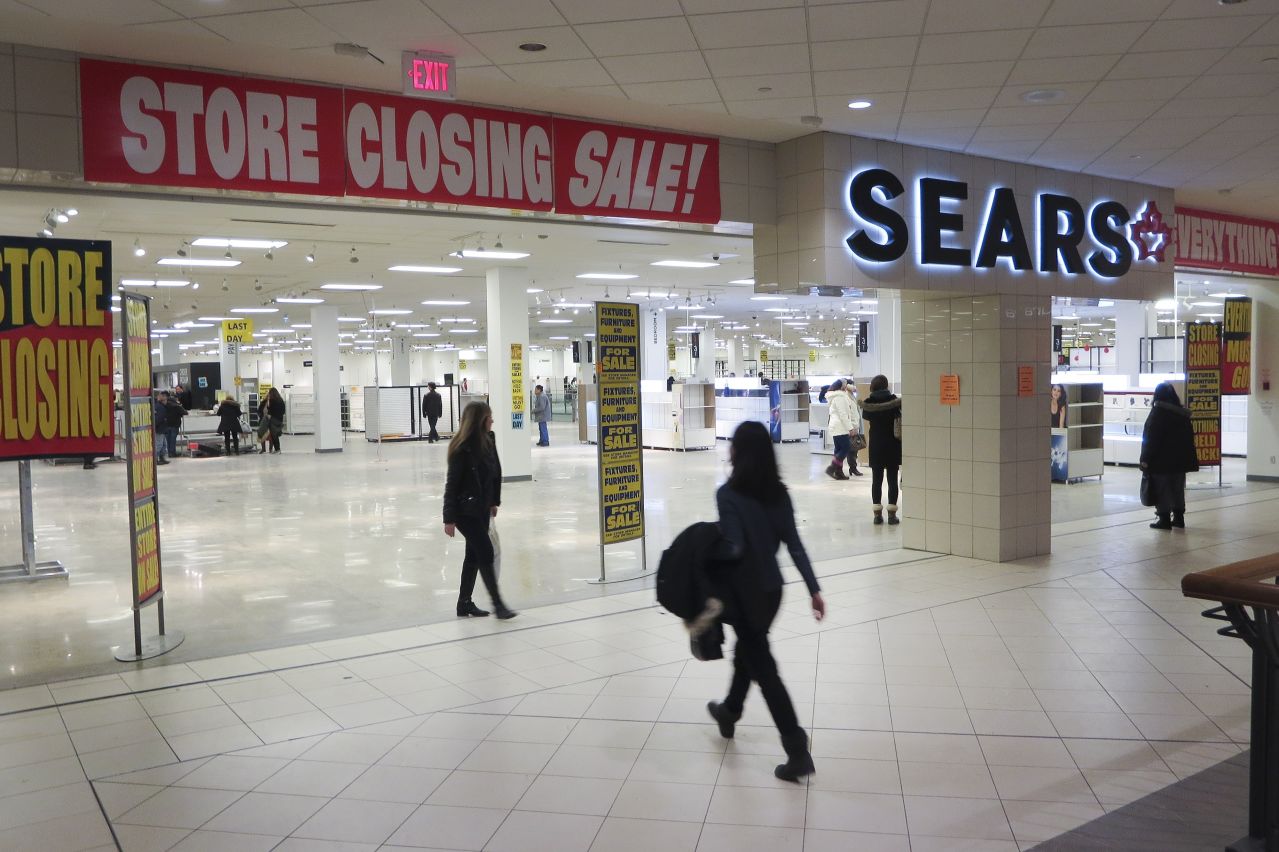Answers
Oct 22, 2018 - 11:30 AM
2. Price. With Walmart's acquisition of Jet.com, they have put Amazon squarely in their sights. Jet.com already offers lower prices than Amazon on average and it seems that Amazon is fine with that. They now rely on their Prime membership benefits and familiar UI to retain customers. I'm not sure if they'll be willing or able to match the lower prices and over time, this might erode their customer base.
3. Technology. My guess is that Sears is still in business if the internet hadn't been invented. Some other technology could come along that drastically alters the retail landscape. Will AR or VR change the way we shop? Will blockchain's impact on supply chains change what's possible for smaller retailers? Will some other unknown technology appear out of nowhere like the internet did? If I had to bet, this would be the one I'd choose.
4. Trying to do too much. Amazon's business now touches a huge breadth of industries, from server infrastructure (AWS) to film studios, to supply chain services, to its traditional retail business and many others. It's not easy to compete in so many different areas of business with each department competing for focus and resources. It's possible that Amazon will be come too large and slow moving that it won't be able to adapt to changes in the market and new technology.

Oct 22, 2018 - 06:51 PM
https://www.wsj.com/articles/youre-a-bad-investor-...
Success, on the other hand, is “the collective response of the community to your performance and how well it acknowledges or rewards you for that,” says Prof. Barabási. As measured by income or wealth or fame or the like, success is an unbounded distribution: “Most people have very little, and a few have many orders of magnitude more.”
Why have Google and Amazon come to dominate online search and retailing? Prof. Barabási credits a process he calls “preferential attachment.” Through this, networks expand explosively as new nodes link most often to those that are already most widely connected.
That doesn’t mean, however, that Amazon.com Inc. or Alphabet Inc., the parent of Google, are destined to become irresistible monopolies. External innovation could still disrupt them, says Prof. Barabási.
Imagine what would happen if 3-D printing became ubiquitous and we could make everything we want at home. We wouldn’t need Amazon to ship it to us.

Oct 23, 2018 - 09:37 PM
In fact, given that there are so many fake Chinese made products on Amazon, I am thinking of starting a marketplace that only sells made in US products or that does the hard work to certify that the products are legit and not a rip-off of someone else's brand.
Nov 05, 2018 - 07:36 PM
Walmart and their acquired "Jet' could. As a matter of fact, that's why they acquired Jet. To be more specific they acquired Jet's CEO so that he could fix Walmart's ecomm.
Walmart had all chance of doing so a few years ago, but now they have to play catch-up. Most likely they won't be able to though (it's too big of a gap now).
Walmart has distribution centers, logistics, and store chains that cover 90% of US population capable of same-day delivery (including Latam and a bunch of other countries) to which Amazon's logistics is no match (at least wasn't just a few years ago). If they did the right thing the right way earlier in the game, they were capable of doing 1-day or same-day free delivery. If they also started to pay more attention to their "shitty" ecomm earlier (combined with delivery), this would have been game over for Amazon (or very tough at least).
This is back in the days when Amazon Prime and free 2-day delivery just started.
They also can and in fact do control the products costs. A lot of local and non-local manufacturers work solely to supply Walmart either under Walmart's own brand(s) or through long-term contracts with Walmart (if Walmart is "kind enough" to put manufacturer's products on the store shelves). There are even whole factories that work to supply only Walmart.
It still holds true (even in the modern e-commerce world) that if Walmart decides to remove your product from their shelves for whatever reason, this would be a HUGE hit to your business (in some cases even the end of it).
Probably too late for Walmart to be able to bring down Amazon now...

Mar 26, 2019 - 10:59 AM
To add to Pavel's answer above, Walmart is trying an interesting experiment with "Jet Black". According to the Wall Street Journal:
 Customer agents Nicole Jaffoni, left, and Kylie McLaughlin at Jetblack’s offices in lower Manhattan. The world’s largest retailer is using Jetblack, a money-losing personal-shopping service, to develop artificial intelligence to compete with e-commerce giant Amazon Epiphany Davis arrived at work in lower Manhattan on a recent morning, consulted her cellphone and set off by foot in search of products ordered via text message by wealthy New Yorkers. From her company’s loft-like headquarters, Ms. Davis walked to a health food store to get SmartyPants Kids vitamins, but the variety was out of stock. Checking her cellphone often for instructions, she walked to a grocery store for a single bag of Guittard milk chocolate chips. She rode the subway to a Nespresso store for three boxes of coffee pods, then walked to Bloomingdale’s to pick up a $245 navy blue MZ Wallace backpack. Ms. Davis works for Jetblack, a personal-shopping company targeted at mothers launched last summer by a surprising newcomer to the field: Walmart Inc. WMT 0.07% A few hundred shoppers in New York City pay $600 a year to order anything by text message except for fresh food. Members were invited by Walmart, or referred by current members, and need to have a doorman to join. Their orders go to Jetblack headquarters where dozens of agents sit at computers and field requests, from reordering diapers to making suggestions on high-end cribs, organic snacks and yoga attire. Couriers fetch the items and bring them back to a Manhattan delivery hub, where they are wrapped in black packaging and hand delivered, usually the same day. It’s a labor-intensive operation that loses money. But making money isn’t the goal, at least not right away. Walmart executives are betting the upstart becomes a powerful weapon in an escalating technological ground war with Amazon.com Inc., as the two companies battle over shoppers who are increasingly making all sorts of purchases online. Walmart is using Jetblack’s army of human agents to train an artificial intelligence system that could someday power an automated personal-shopping service, preparing Walmart for a time when the search bar disappears and more shopping is done through voice-activated devices, said Jetblack CEO Jenny Fleiss.
Customer agents Nicole Jaffoni, left, and Kylie McLaughlin at Jetblack’s offices in lower Manhattan. The world’s largest retailer is using Jetblack, a money-losing personal-shopping service, to develop artificial intelligence to compete with e-commerce giant Amazon Epiphany Davis arrived at work in lower Manhattan on a recent morning, consulted her cellphone and set off by foot in search of products ordered via text message by wealthy New Yorkers. From her company’s loft-like headquarters, Ms. Davis walked to a health food store to get SmartyPants Kids vitamins, but the variety was out of stock. Checking her cellphone often for instructions, she walked to a grocery store for a single bag of Guittard milk chocolate chips. She rode the subway to a Nespresso store for three boxes of coffee pods, then walked to Bloomingdale’s to pick up a $245 navy blue MZ Wallace backpack. Ms. Davis works for Jetblack, a personal-shopping company targeted at mothers launched last summer by a surprising newcomer to the field: Walmart Inc. WMT 0.07% A few hundred shoppers in New York City pay $600 a year to order anything by text message except for fresh food. Members were invited by Walmart, or referred by current members, and need to have a doorman to join. Their orders go to Jetblack headquarters where dozens of agents sit at computers and field requests, from reordering diapers to making suggestions on high-end cribs, organic snacks and yoga attire. Couriers fetch the items and bring them back to a Manhattan delivery hub, where they are wrapped in black packaging and hand delivered, usually the same day. It’s a labor-intensive operation that loses money. But making money isn’t the goal, at least not right away. Walmart executives are betting the upstart becomes a powerful weapon in an escalating technological ground war with Amazon.com Inc., as the two companies battle over shoppers who are increasingly making all sorts of purchases online. Walmart is using Jetblack’s army of human agents to train an artificial intelligence system that could someday power an automated personal-shopping service, preparing Walmart for a time when the search bar disappears and more shopping is done through voice-activated devices, said Jetblack CEO Jenny Fleiss.
Mar 26, 2019 - 06:23 PM
In the mid nineties, we were Amazon before Amazon was Amazon. We created a multiple-award-winning ecommerce solution for small and medium sized merchants, and had hundreds of customers within months, absolutely burying our competition. We created the first website to accept credit cards. We created the first single shopping cart mall on the internet. Our plans for world domination were stymied by a bunch of frighteningly clueless people (from Canada (but I love Canada). If things hadn't happened the way they did, you'd be reading this on a platform of our making. Go figure. "Communication": It does what it says on the tin.







Add New Comment